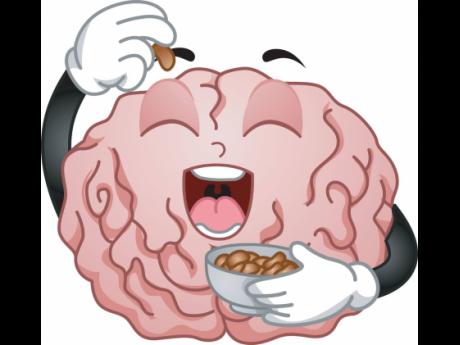Tips to keep your brain healthy
THE BRAIN is a very important organ as it is the control centre of your body and it allows you to move, think, feel, breathe and more. As the brain has such a big job, it is imperative that we provide it with an abundance of fuel and nutrients to help it function properly and stay healthy.
The brain changes throughout life, adapting to things we have learnt and experienced. In a healthy brain, new connections continually develop and broken ones are repaired.
As we get older, particularly from middle age onwards, changes can start to happen within the brain so that there’s a gradual decrease in mental capabilities. This is known as age-related cognitive decline, and it typically results in people becoming more forgetful and less mentally sharp. So, although brain health is important at every age, it becomes more imperative as we grow older.
Mental decline is one of the most frightening aspects of ageing, but it is not inevitable. By working to improve brain health, you can help maintain your memory, understanding, communication and quality of life.
BRAIN FOOD
Dr Rivane Chybar Virgo, medical doctor and health and wellness coach, said the foods we eat play a huge role in the structure and health of our brains. A 2019 study published in Public Health Nutrition showed that foods rich in vitamins, minerals, antioxidants, flavanols, polyphenols and omega-3 fatty acids can help protect your brain. They can help to improve memory, concentration and overall brain health.
“The foods you eat play an important role in brain health. You can help to improve your brain health, memory and alertness by including a variety of nutritious foods such as leafy greens and eggs, in your daily diet. These foods may also help to reduce the risk of age-related neurodegenerative diseases, such as dementia and Alzheimer’s disease,” Dr Chybar Virgo said.
While we know that staying physically active is beneficial in all areas of our life, it can also be valuable when it comes to maintaining brain health.
“Studies show that people who remain physically active have a lower-than-average risk of decline in thinking skills with ageing. Getting a decent night’s sleep is also important, so enjoy an early night from time to time and make sure you are getting the recommended amount of rest,” Dr Chybar Virgo said.
RISK FACTORS
Additionally, it is what we put in our bodies that helps too. Risk factors include being overweight, having high blood pressure, high cholesterol or diabetes, so maintaining a healthy weight and being physically fit can make all the difference.
While there is not yet concrete evidence that brain-training computer games actually do what they claim to, it is certainly worth keeping your brain stimulated through activities that you enjoy, whether that be crosswords, salsa dancing or cooking.
It seems though that the highest levels of cognitive stimulation may come when we do new activities, especially where we learn new skills in a group environment, so-called ‘productive-engagement’. It seems then, to keep our brain in good health, it’s important that we do things that we enjoy while occasionally trying new things, as well as staying as fit, active and healthy as possible.
For more information on taking care of your brain health contact: healthtalksundays@gmail.com

